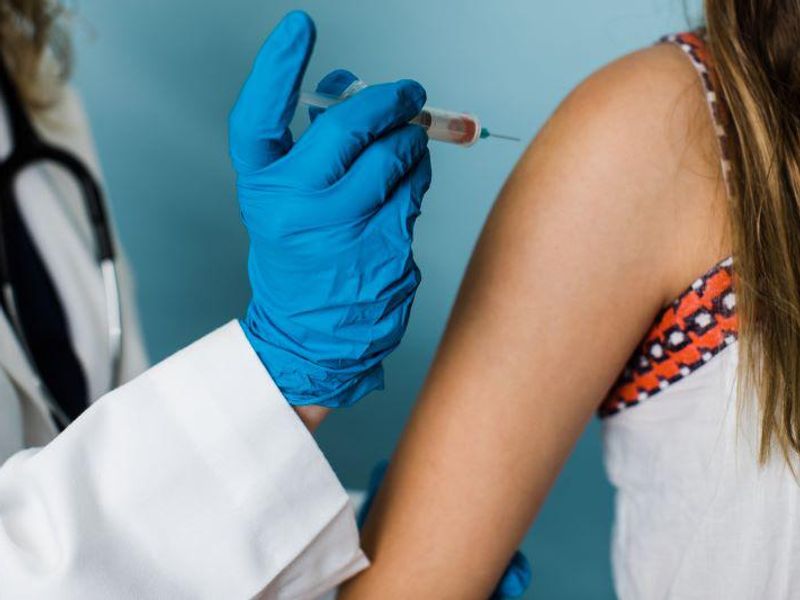Human papillomavirus (HPV) infection is a major risk factor for the development of secondary malignancies (such as cervical and anal cancers) in people who have survived cancer in childhood. However, HPV vaccination uptake is poor among young cancer survivors, despite its efficacy in preventing the infections that contribute to these cancers. The most common barrier to cancer survivors receiving the HPV vaccine is a lack of endorsement from their healthcare professionals. The most effective strategies for raising HPV vaccine uptake in the general population focus on improving healthcare providers’ abilities to successfully offer the vaccine and decreasing barriers young people and their parents face in acquiring the vaccine. To boost HPV vaccine uptake among cancer survivors 9–17 years of age, this study assessed the efficacy and implementation of an evidence-based healthcare provider-focused intervention (HPV PROTECT) modified for pediatric oncology clinics. This research employed a mix of type 1 effectiveness and implementation strategies. Using a stepped-wedge cluster-randomized trial across a national sample of pediatric oncology clinics, researchers assessed the efficacy of the HPV PROTECT intervention. Providers’ perceptions of the intervention’s feasibility, acceptability, and appropriateness in the pediatric oncology setting; providers’ adherence to intervention components; and providers’ growth in HPV vaccine-related knowledge and practices (e.g., recommendations for vaccination; elimination of barriers to vaccination) were all measured using a combination of quantitative and qualitative techniques. By evaluating the efficacy of an evidence-based provider-directed intervention adapted for the pediatric oncology setting to increase HPV vaccine initiation in young cancer survivors receiving care in pediatric oncology clinics and by collecting data on intervention delivery to inform future implementation efforts, this multisite trial filled critical knowledge gaps related to the prevention of HPV-related malignancies in young cancer survivors. If HPV PROTECT proves beneficial, it will be disseminated widely for testing by the pediatric oncology community to increase HPV vaccination uptake among cancer survivors and protect this vulnerable population from HPV-related morbidities.
Source: bmcpediatr.biomedcentral.com/articles/10.1186/s12887-022-03562-1


